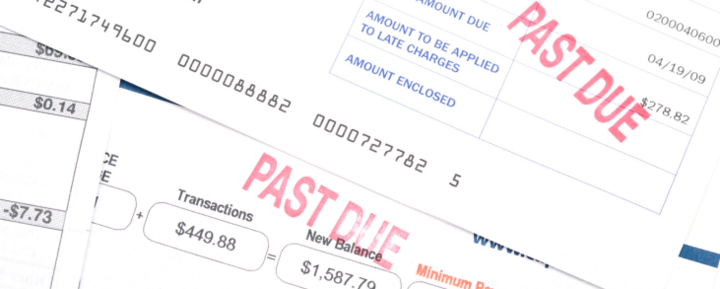Consolidating debt can have a significant positive impact on your finances, especially if it helps you pay down your debt more quickly and with interest savings. But you may be wondering, “Does debt consolidation hurt your credit score?”
The debt consolidation process does impact your credit score. But depending on how you do it, it could actually help your credit instead of hurting it. And while your credit score may dip slightly at first, it’ll likely only be temporary, especially if you’re managing the process and subsequent payments well.
What is debt consolidation?
Debt consolidation is the process of paying off existing loans or credit cards with a new loan or card. In the right situation, consolidating debt could offer several benefits:
- It could help you save on interest.
- You might be able to pay down your debt faster.
- It could simplify your debt situation by combining multiple payments into one.
- It could provide a better structure to your debt repayment plan.
The two primary ways to consolidate debt include debt consolidation loans and balance transfer credit cards.
Debt consolidation loans are really just personal loans you use to pay off other debt. It’s common for people to use this type of approach because personal loans charge lower interest rates than credit cards, on average — though it’s not always guaranteed.
Also, unlike credit cards, personal loans have set repayment terms. So you’ll know exactly when you’ll be out of debt.
On the other hand, balance transfer credit cards are useful because they offer an introductory 0% APR promotion. These promotions typically last between six and 20 months. During this time, you can pay off your balance interest-free, saving you money and cutting down the amount of time it takes to achieve your goal.
How does debt consolidation affect credit?
Debt consolidation can impact your credit score in a few ways. Here’s what to know about each one.
Credit inquiries
First, virtually every time you apply for credit, the lender runs a hard inquiry on one or more of your credit reports. According to FICO, each additional inquiry typically drops your score by fewer than five points. That’s not bad, and the negative impact is generally temporary.
Credit utilization
Your credit utilization rate is an important factor in your credit score. You calculate it by adding up all of your credit card balances then dividing them by your total credit limits. You’ll also do this with each individual card.
For example, if you have a $5,000 balance on a card with a $10,000 limit, your utilization rate is 50%.
The lower your utilization rate, the better it is for your credit score. So if you use a personal loan to pay off your credit card debt, that drops your utilization rate to zero, which can have a positive impact on your score. If you use a credit card, though, it depends on the limit of the new card.
If we take the same card, for instance, and move the $5,000 balance to a card with a $20,000 limit, your utilization will drop to 25%, and your credit score may respond positively. On the flip side, if you transfer the balance to a card with a $6,000 limit, your rate will jump to roughly 83%, which can hurt your credit.
Again, though, this impact will be temporary, as long as you pay down your balance quickly.
Payments
While you’re going through the debt consolidation process, it’s crucial to continue making your monthly payments on your original debt. That is until it’s paid in full by the new lender. If you stop paying and it takes longer than you thought, the late payment could be reported to the credit bureaus.
Also, if you miss a payment on the new debt because the new payment is too high, it will likely hurt your credit if it’s late by 30 days or more.
But if you pay on time every month, it will help boost your credit over time.
Does debt consolidation affect credit if it’s another approach?
A debt management plan can also be a form of debt consolidation. If your credit isn’t in good shape, you may consider speaking with a credit counselor to get help. A credit counselor or other financial professional can put you on a debt management plan, which typically lasts three to five years.
During this time, you’ll make just one monthly payment to the agency, which will disburse your payments to each of your creditors. This simplifies your situation, and the agency may also be able to negotiate lower interest rates or payments with your lenders.
Debt management plans won’t necessarily hurt your credit score. But there will be an addition to your credit reports saying that you’re using such a plan to repay your debts. After all, it’s a different payment agreement than the one you initially made with the lender.
This notation won’t hurt your credit, but if you apply for credit, prospective lenders can see it and may choose not to approve your application.
Finally, debt settlement isn’t considered debt consolidation. However, debt settlement companies sometimes advertise themselves as debt consolidation companies.
Debt settlement can have a significant negative impact on your credit score, primarily because you have to stop making payments during the process. Instead, you’ll pay into an account with the debt settlement company or law firm. Then once you reach a satisfactory balance, they’ll negotiate on your behalf.
Because debt settlement can hurt your credit score, it’s best considered only if you’re already behind on payments and have exhausted your other options.
Also, remember that while it may hurt your credit right now, it may be worth it to get a new start on your debt situation. In some cases, you can save thousands of dollars in a settlement negotiation.
The bottom line
If you’re wondering, “Does debt consolidation ruin your credit?” the answer is not always. In a situation where you want to pay down debt and your credit is in good shape, consider a debt consolidation loan or balance transfer credit card.
If your credit is less than stellar or your situation feels out of control, getting on a debt management plan may be the best approach. And if you’re already missing payments and don’t see a way out, debt settlement can be a great alternative to bankruptcy, even if the process can damage your credit score.
Take some time to consider your situation carefully, and consider getting a free consultation with a professional to help you decide which path you should take and how to protect your credit score as much as possible during the process.








